NordVPN vs. TunnelBear: Which VPN is a better buy?
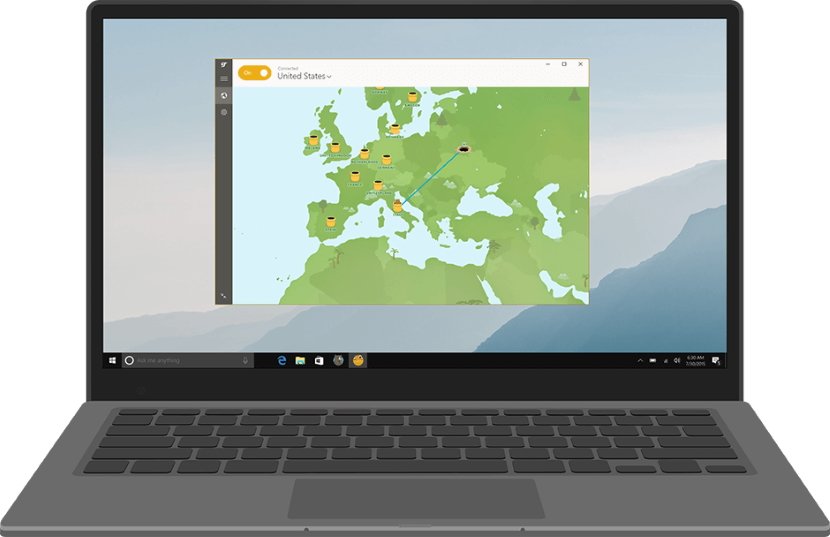
All the latest news, reviews, and guides for Windows and Xbox diehards.
You are now subscribed
Your newsletter sign-up was successful
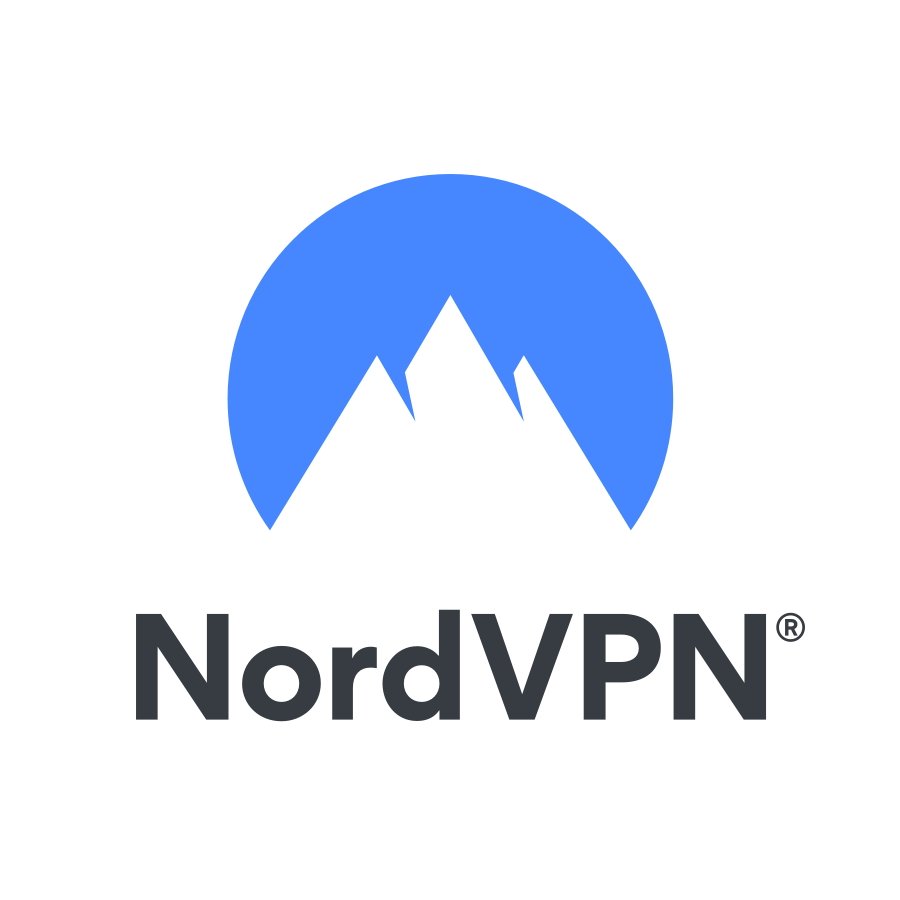
More security features
NordVPN has over 5,200 servers in 59 countries. Its network supports simultaneous connections for up to six of your devices. Its support for several OSes and web browsers is impressive, as are its extra security features.
Pros
- Unlimited bandwidth
- Two VPN protocols supported
- Apps for six OSes
- Extensions for browsers
- Double VPN
Cons
- Doesn't list number of shared IP addresses
- Only up to six simultaneous connections
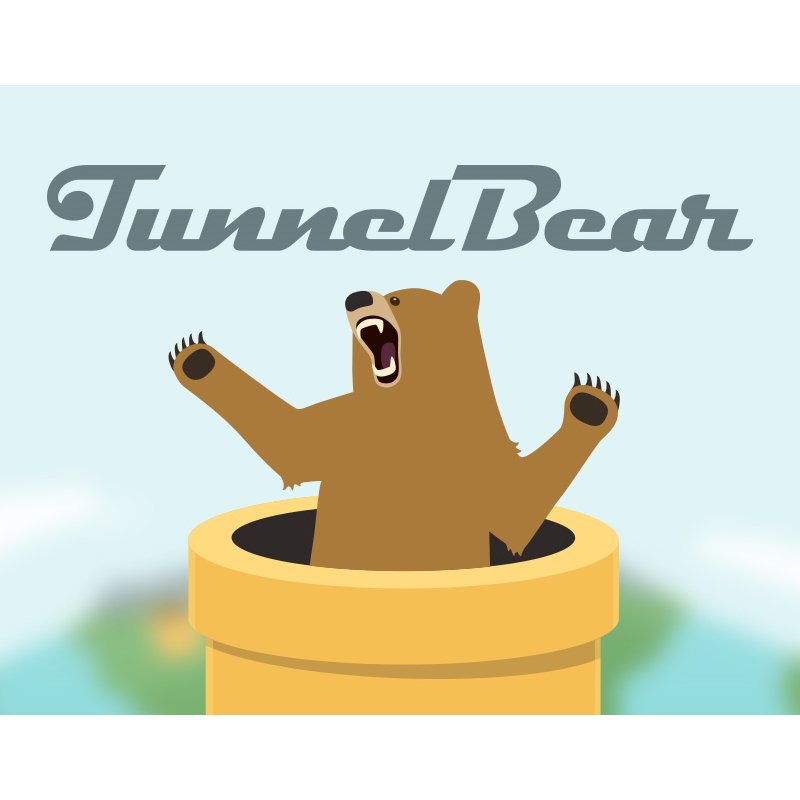
Free monthly plan
TunnelBear has servers in 23 countries. While its network only supports simultaneous connections for up to five of your devices, it offers a free plan with 500MB bandwidth and an affordable business team plan.
Pros
- Unlimited bandwidth
- Three VPN protocols supported
- Apps for four OSes
- Extensions for browsers
- Free plan with 500MB bandwidth
Cons
- Unlisted no. of servers, shared IP addresses
- Only up to five simultaneous connections
- No double VPN
What you need to know about VPNs
A VPN (Virtual Private Network) can help protect your privacy when you're on the internet by hiding your browsing activity and where you are located in the world. It can also try to bypass censorship that might block you from visiting certain websites, or overcome regional restrictions that prevent you from watching video licensed for viewing outside your location.
NordVPN is one of the most popular companies in the VPN field, featuring thousands of servers located throughout the world. TunnelBear is a less known company. How does it compare to NordVPN?
We reviewed NordVPN and tried out TunnelBear for the purposes of this article. Neither would have been featured here if it didn't perform capably enough for basic web browsing. However, the performance of a VPN depends on several factors: the location of the server that you connect to, how much traffic that server is experiencing when you are connected to it, and where you yourself are located in the world.
So, when considering a VPN service, check if the company has a money-back guarantee or free trial period. This will allow you to test it and determine if its network's performance will work for your needs long-term.
NordVPN vs. TunnelBear: Log keeping
A VPN that tracks and logs your activity while you're on its network is not preferred. If outside parties can get hold of those logs, this essentially goes against the point of you using a VPN. It's also important to consider the country that a VPN company is based in. The U.S., for example, has aggressive surveillance agencies.
NordVPN states on its website:
We do not store connection timestamps, session information, used bandwidth, traffic data, IP addresses, or other data. Nothing to store — nothing to share with anyone.
NordVPN is based in Panama City, Republic of Panama, which has no laws requiring data retention. More information about NordVPN's privacy policy can be found here.
TunnelBear has a similar policy. It states on its website:
TunnelBear does NOT log any activity of customers connected to our service. Period. Your privacy is paramount.
TunnelBear is based in Toronto, Canada. More information about its privacy policy can be found here.
NordVPN vs. TunnelBear: Servers and locations
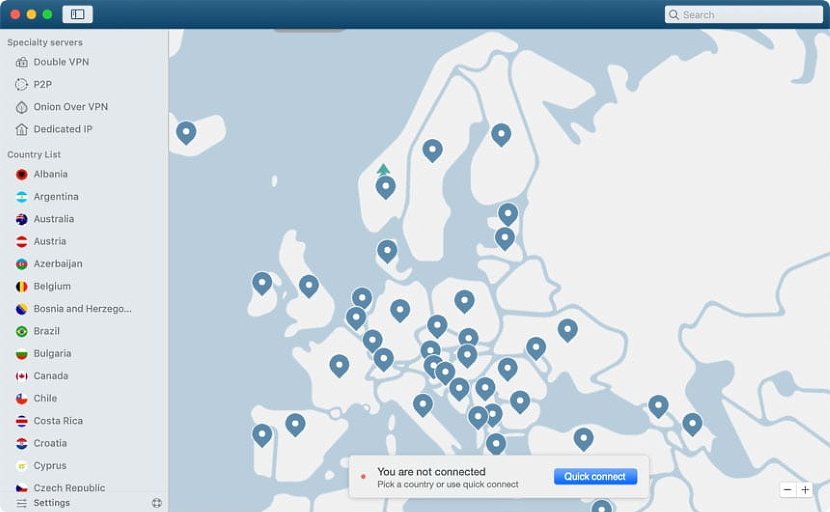
A good VPN service should have a large number of servers to choose from, allowing you to get a solid, fast connection no matter where you are.
NordVPN has over 5,200 servers in 59 countries. Some countries will have extra features included with their servers (such as Double VPN or P2P) while others will use a simple VPN hookup to mask your identity. The most servers are located in Europe with 2,483 servers in countries that include the U.K., Netherlands, Germany, France, and Sweden. The Americas is second with 2,024 servers in countries that include the U.S., Canada, Brazil, Argentina, and Mexico. Among all the countries in the world, NordVPN has the most servers in the U.S. followed by the U.K.. The company doesn't list how many shared IP addresses its VPN uses.
You can even get a dedicated IP address for an extra $70 per year that's located in France, Germany, the Netherlands, U.K., or U.S..
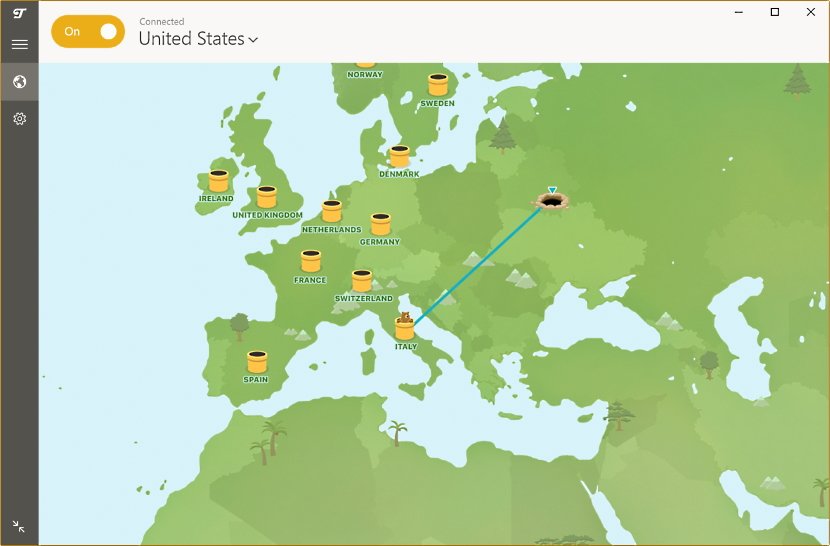
TunnelBear lists that it has servers in 23 countries that include the U.S., Canada, Mexico, Brazil, the U.K., many European countries, India, Hong Kong, Japan, Singapore and Australia. Unfortunately, its website doesn't list how many servers and shared IP addresses it uses.
NordVPN vs. TunnelBear: Number of devices
A good VPN service allows you to connect more than one computer or device to its network under one account. It's worth noting that a router counts as one device. So devices that are connected to a router that's connected to a VPN don't count toward this total.
NordVPN let's you connect up to six of your devices to its network at once. TunnelBear's maximum number of connected devices is five. NordVPN wins out here, but it's worth noting that there are other VPN services that allow you to connect more devices.
NordVPN vs. TunnelBear: Bandwidth limits
A VPN may impose a bandwidth limit. You should expect this if it's a free service. When you pay for a VPN plan, there shouldn't be a limit.
Both NordVPN and TunnelBear have no bandwidth limits, but TunnelBear offers a free plan that gives you 500MB of bandwidth per month. The fat that TunnelBear has a free plan is a huge plus, especially if that's what you're looking for.
NordVPN vs. TunnelBear: Features and apps
Apps may be provided by a VPN service that make it easy for you to connect to its network.
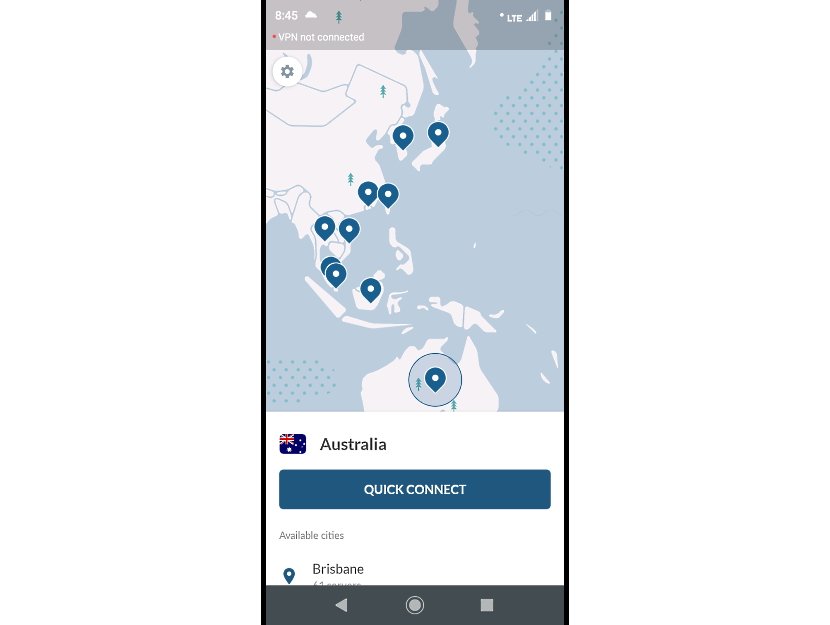
NordVPN has apps for Android, Android TV, iOS, Linux, macOS, and Windows devices. There are also extensions for Chrome and Firefox to let you use NordVPN through these browsers.
These apps incorporate an ad and malicious site blocker, along with a kill switch that'll block web access to your device if its connection to the NordVPN network drops. Other included features are double VPN and easy-to-use streaming of region-restricted video.
(In a double VPN setup, your internet communications travel through two VPNs. They are encrypted and sent through a VPN, are encrypted again by that VPN, and then are sent through a second VPN that finally connects to the website or online service you're trying to access. The second VPN doesn't know your whereabouts, only the first VPN's. This extra layer of privacy results in much slower speed, however.)
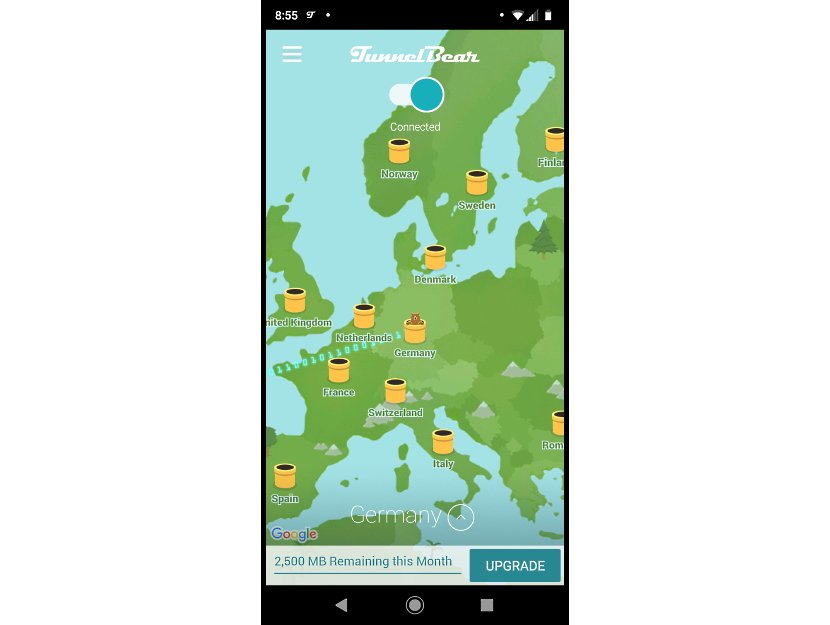
TunnelBear has apps for Android, iOS, macOS and Windows devices. There are also extensions for Chrome, Firefox and Opera to let you use TunnelBear through these browsers.
If your connection gets disrupted for any reason, TunnelBear can block all unsecured traffic until it's safely reconnected. Another feature will try to circumvent servers that have been configured to detect and terminate OpenVPN connections. These two features are available for Android, macOS and Windows devices only.
TunnelBear's apps don't have specialized tools to help you conveniently bypass streaming services. You just use its apps to connect to a location in the world. Then you use your browser to try to access a website of a streaming service that restricts you and other visitors from your actual location. (But that's how this process works with most VPNs.)
NordVPN vs. TunnelBear: Pricing
NordVPN's plan costs $3.49 per month when you pay for three years upfront. You can also get it at $4.99 for two years upfront, $6.99 for one year upfront, or $11.95 if you go monthly. These payment plans all come with a 30-day, money-back guarantee. NordVPN offers plans for business teams, which you must inquire about for rates based on your business' needs.
TunnelBear's plan costs $4.99 per month when you pay for one year upfront, or $9.99 if you go monthly. You can cancel at any time. A second plan, Teams, is meant for business that allows you to add users and manage them under one account. It costs $5.75 per user per month. It comes with a 7-day, free trial period.
So which VPN should you use?
If you want access to a large number of servers throughout the world, then it comes down to NordVPN. This is also the service you should consider if you'd like to be able to use double VPN to further secure your online privacy. You can also pay for a dedicated IP address.
It's unknown how many servers TunnelBear has. But its service may be worth a look by signing up to test its free plan (which you can do without having to give TunnelBear any of your payment information). Its free plan can also be worthwhile to teach yourself how a VPN works and experience what it could do for you.
We test and review VPN services in the context of legal recreational uses. For example:
1. Accessing a service from another country (subject to the terms and conditions of that service).
2. Protecting your online security and strengthening your online privacy when abroad.
We do not support or condone the illegal or malicious use of VPN services. Consuming pirated content that is paid-for is neither endorsed nor approved by Future Publishing.
All the latest news, reviews, and guides for Windows and Xbox diehards.

Howard is a Former Contributor for Windows Central.
